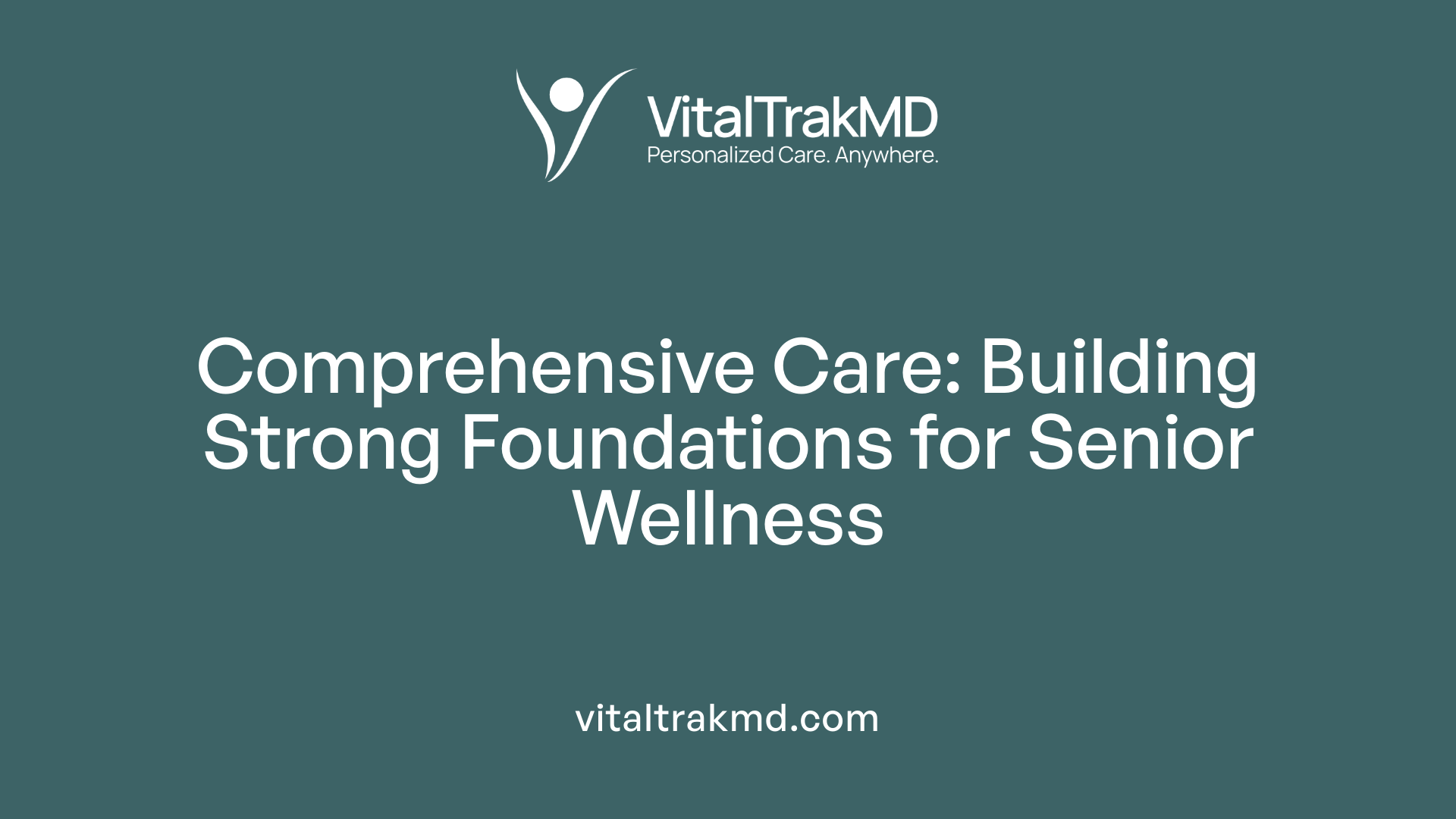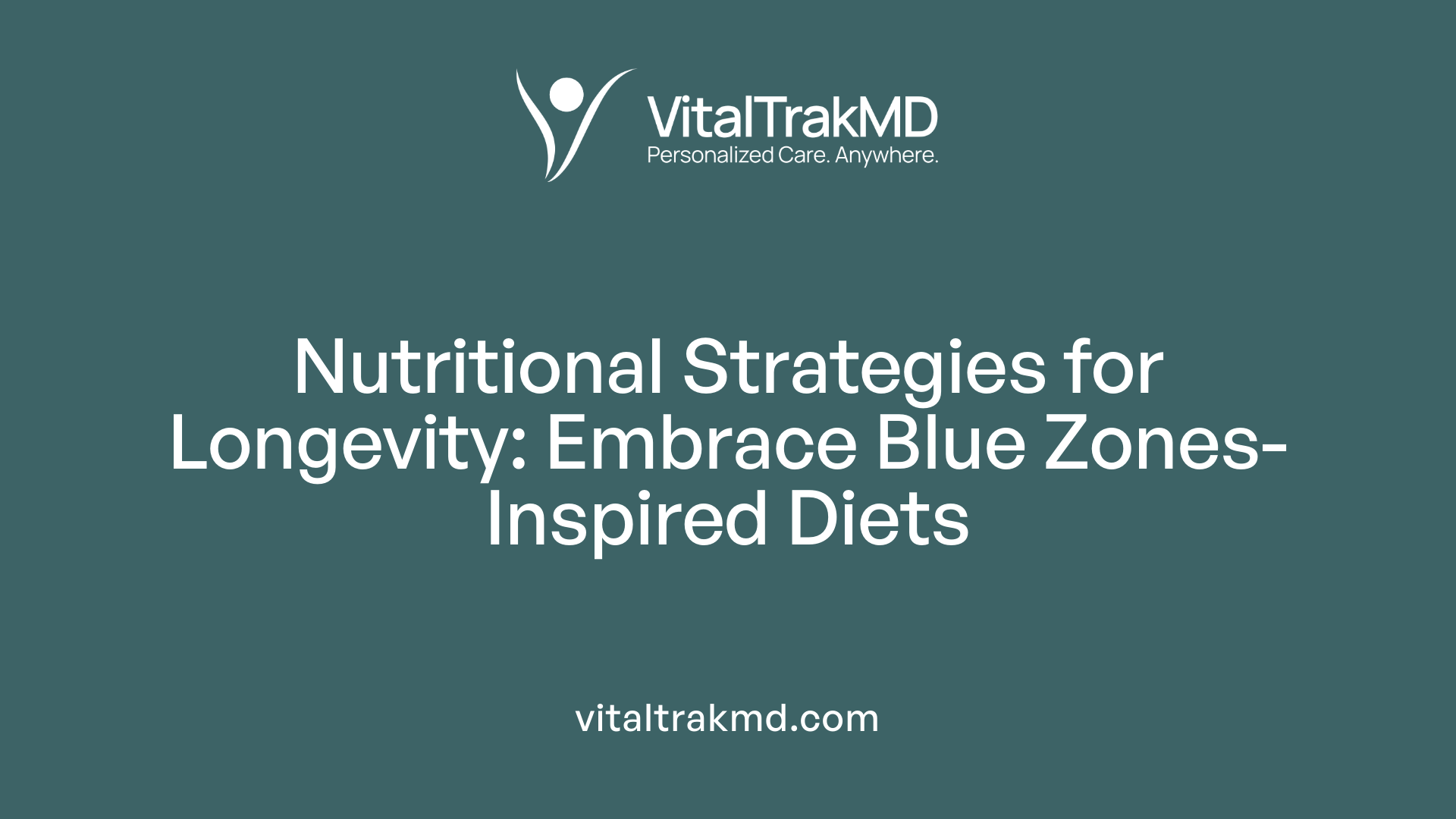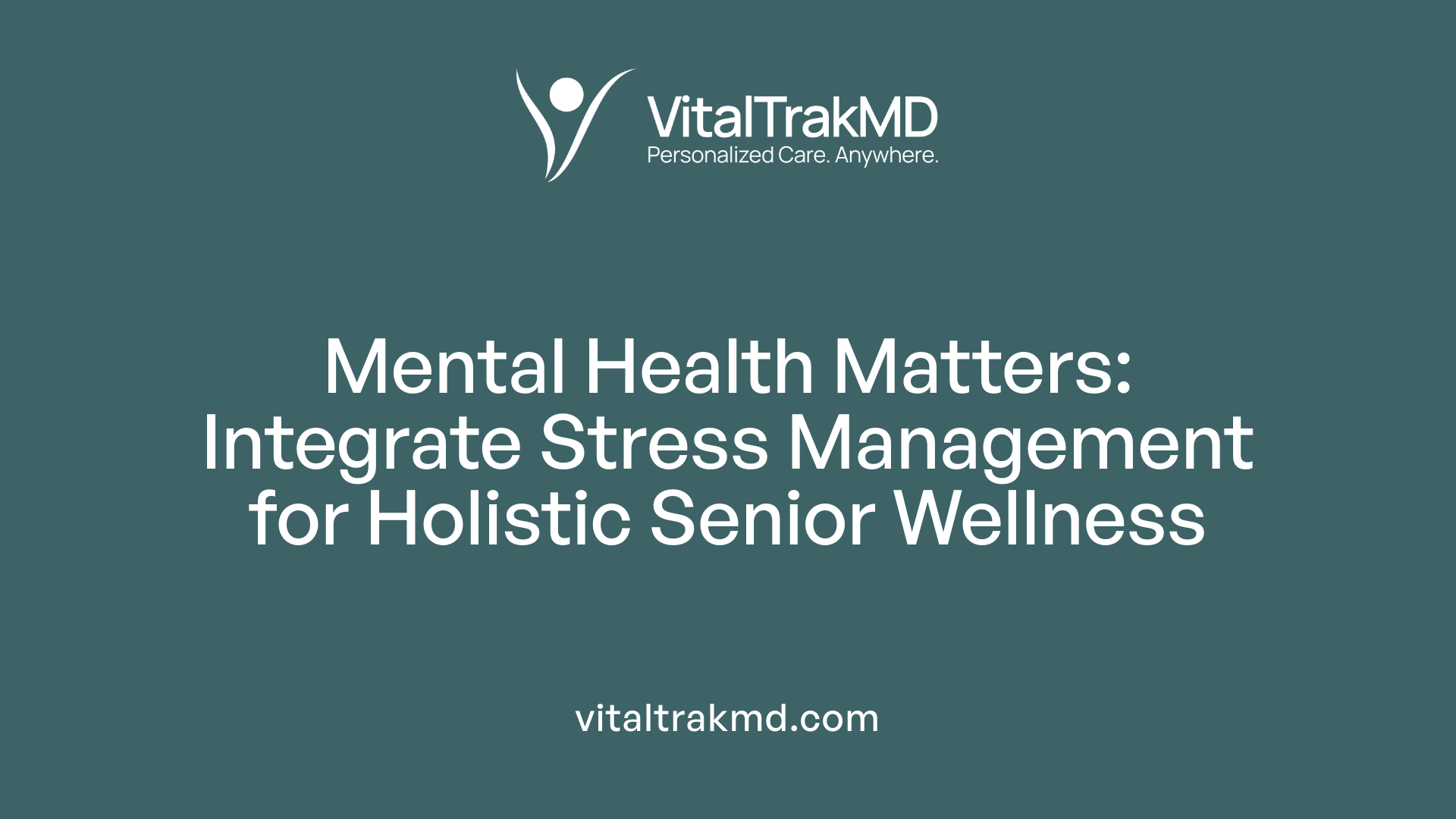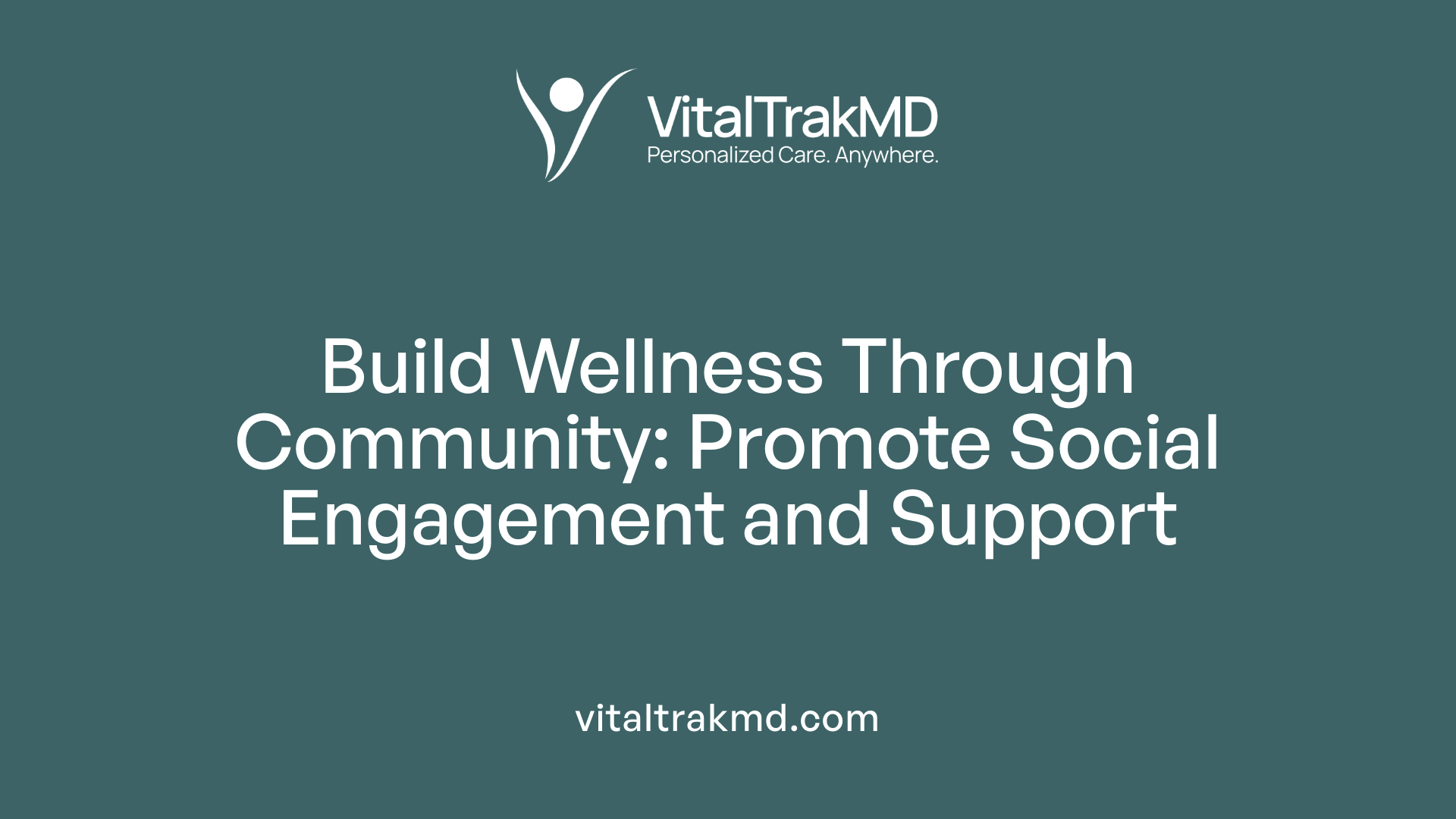The Role of Hybrid Care in Helping Seniors Manage Stress

Understanding the Modern Approach to Senior Wellness
As seniors face unique stressors impacting their physical and mental health, hybrid care models—combining in-person and remote support—emerge as powerful strategies to help them manage stress effectively. These integrative programs blend physical activity, nutrition, social engagement, and mental health support to promote holistic well-being. This article explores how hybrid care programs address senior stress and foster sustained health improvements through evidence-based approaches.
Comprehensive Wellness Programs: Foundations for Senior Health Enhancement

What are the components of effective senior wellness programs?
Effective senior wellness programs are multifaceted, integrating physical, mental, and emotional health strategies. Essential components include regular physical activities such as aqua therapy and tai chi, balanced nutrition inspired by longevity-promoting diets like Blue Zones, and specialized therapies like physical, occupational, and speech therapy for conditions such as Parkinson's. Additionally, stress management techniques, social engagement opportunities, and routine health screenings enrich these programs.
How do nutrition and physical activity influence overall health in seniors?
Nutrition and physical activity are cornerstone elements in enhancing senior health. Diets rich in plant-based foods, like those inspired by Blue Zones, foster longevity and reduce disease risk. Physical activity guidelines recommend 150–300 minutes of moderate-intensity exercise weekly, which can lower the risk of early death by up to 21%. Programs such as the Fitness and Nutrition Program for Seniors (FANS) demonstrate that combined exercise and nutritional guidance improve balance, walking speed, muscle mass, and nutritional status without adverse effects.
What holistic approaches integrate mind, body, and spirit for senior wellness?
Holistic wellness emphasizes the interconnectedness of body, mind, and spirit to promote balance and harmony beyond just the absence of illness. Activities such as meditation, yoga, and tai chi induce relaxation responses, reduce stress hormones, and improve cardiovascular health. Social participation, including volunteering, lowers depression and anxiety risks, highlighting the role of emotional well-being in senior health.
What examples of successful wellness programs and evidence-based practices exist?
Several successful programs combine evidence-based strategies with supportive community settings. The 'Live Well' program by Stanford University focuses on managing chronic conditions through workshops on pain, fatigue, nutrition, and healthcare communication. The Parkinson's program at Ciela Senior Living incorporates physical, occupational, and speech therapy to enhance mobility and balance. The hybrid FANS program effectively uses in-person and remote support to improve physical performance in frail seniors.
These comprehensive programs demonstrate that the most effective wellness initiatives for seniors combine balanced nutrition, regular physical activity, stress management, social engagement, and specialized therapies, supported by continuous education and community involvement to improve overall health outcomes.
Weight Loss and Nutritional Strategies in Senior Care Programs

Which weight loss strategies are supported by scientific research?
Scientific research supports a multifaceted approach for effective weight loss in seniors. Key methods involve calorie control combined with balanced diets rich in nutrients, regular physical exercise, behavioral modification techniques, and stress management. Consistent tracking of nutrition, sleep quality, and stress levels plays an essential role in sustaining weight management efforts over time.
What is the role of plant-based diets inspired by Blue Zones?
Plant-based diets, like those inspired by the Blue Zones lifestyle, focus primarily on whole plant foods such as vegetables, fruits, legumes, and whole grains. This dietary approach emphasizes nutrient density and lower intake of processed and animal-based foods, which can promote longevity and overall health among older adults. Senior living communities adopting such diets support improved metabolism and decreased inflammation, contributing to healthier weight management.
How do behavioral modification and lifestyle changes aid weight loss in seniors?
Behavioral modification programs teach seniors to manage symptoms and emotional challenges related to chronic conditions while encouraging healthier habits. Group workshops fostering goal setting, problem solving, and peer support help seniors implement lasting lifestyle changes. Combining these with wellness activities, routine medical care, and social engagement enhances weight loss success and overall well-being.
Why is monitoring nutrition, sleep, and stress important?
Monitoring key health indicators such as nutrition intake, sleep quality, and stress levels is critical. Poor sleep and chronic stress negatively affect metabolism, appetite regulation, and hormone balance, which can hinder weight loss. Wellness programs incorporating stress management techniques—like meditation or yoga—and sleep hygiene education support healthier physiological functioning and encourage sustainable weight control in seniors.
Hybrid Care Models and Their Role in Supporting Long-Term Weight and Stress Management for Seniors

How does hybrid delivery of physical activity and nutritional programs work?
Hybrid care models combine in-person and remote elements to create a flexible, supportive environment for seniors. For example, the Fitness and Nutrition Program for Seniors (FANS) includes physical training sessions, nutritional guidance, group discussions, and remote support through a mobile app. This approach promotes consistent participation and adapts to seniors' varying mobility and access needs.
What role do remote support technologies and group discussions play?
Remote technologies like mobile apps provide continuous motivation, track progress, and allow seniors to stay connected beyond face-to-face sessions. Group discussions create social engagement, foster peer encouragement, and share problem-solving strategies, which are vital to sustaining motivation and emotional well-being.
How do care programs offer continuous guidance and psychological support?
Programs such as the Chronic Disease Self-Management Program (CDSMP) teach skills to manage symptoms, medication, and emotions. They emphasize goal setting and provide workshops that address mental health challenges, nutrition, and communication, ensuring integrated support for both physical and psychological health.
How can these programs help maintain long-term weight loss and stress control?
By combining evidence-based nutritional advice with regular physical activity, ongoing self-management education, and stress-reduction techniques—such as meditation and social engagement—integrated care programs tackle the complex factors influencing weight and mental health. Social support and routine follow-up reinforce healthy habits and reduce feelings of isolation, which are crucial for sustained wellness.
How can care programs support individuals in maintaining long-term weight loss?
These programs support long-term weight management by offering continuous behavioral strategies and psychological assistance. They help seniors monitor their diet, physical activity, sleep quality, and stress levels, setting realistic goals while encouraging participation in supportive groups and communities. This holistic approach increases the likelihood of lasting lifestyle changes by addressing both physical and emotional factors.
The Crucial Role of Mental Health in Senior Wellness and Stress Reduction

How Does Mental Health Impact Seniors' Physical Health?
Mental health profoundly influences the physical well-being of older adults. Chronic stress is linked to an increased risk of cardiovascular diseases, diabetes, depression, and dementia, especially since aging brains have a reduced ability to process stress hormones. Seniors experiencing stress may encounter symptoms like tension headaches, heart palpitations, anxiety, and sleep problems, which diminish overall physical health.
What Role Does Mental Health Play in Successful Weight Loss and Wellness Programs?
Mental health is critical in both weight loss and wellness efforts among seniors. Emotional regulation and motivation are key factors that affect adherence to physical activity and nutrition goals. Addressing mental health by integrating mindfulness techniques, supportive social networks, and professional interventions fosters sustained behavioral change, prevents relapse, and enhances wellness outcomes.
What Strategies Help Manage Stress and Enhance Mental Health in Seniors?
Several approaches promote mental well-being and stress reduction:
- Mindfulness and Meditation: Techniques like meditation and breathing exercises trigger relaxation responses.
- Social Support and Volunteerism: Engaging with others reduces feelings of isolation and lowers depression and anxiety.
- Professional Help: Therapies such as counseling can assist in managing emotional challenges.
- Physical Activity and Hobbies: Activities like tai chi, yoga, and arts promote both physical fitness and emotional balance.
Why Are Social Connection and Volunteerism Significant?
Social disconnection is a health risk comparable to smoking 15 cigarettes daily. Participation in volunteer activities among seniors is linked with decreased rates of depression and anxiety, reinforcing the importance of maintaining social networks. Programs that encourage social engagement can contribute to improved mental and physical health outcomes.
Active Participation and Social Engagement as Pillars of Stress Management in Senior Living

Why is socialization vital for stress reduction among seniors?
Social engagement plays a crucial role in lowering stress and improving mental health for older adults. Studies show that social disconnection carries mortality risks comparable to smoking 15 cigarettes daily and is even more dangerous than obesity or inactivity. Senior living communities that foster group support and social participation, such as workshops and volunteer opportunities, help combat depression and anxiety, providing meaningful connections and emotional relief.
What activities help seniors relax and enhance physical health?
Programs focusing on holistic wellness use activities like tai chi, meditation, and aqua therapy to promote relaxation and physical well-being. For instance, StoneRidge offers tai chi and meditation classes that engage over 90% of residents, while Ciela Senior Living’s hydrotherapy pool supports joint health and balance. These practices lower stress hormones through relaxation responses, improving seniors’ overall health.
How can chronic stress be identified and managed among senior populations?
Chronic stress in seniors manifests as symptoms like tension headaches, indigestion, heart palpitations, irritability, and sleep disturbances. Common sources include financial concerns, lifestyle changes, and loss of loved ones. Effective strategies to alleviate stress include meditation, breathing exercises, physical activity, yoga, engaging hobbies, and socialization, all of which can be part of senior living wellness programs.
What advantages do hybrid wellness programs offer in senior living communities?
Hybrid wellness programs combining in-person and remote support, such as the Fitness and Nutrition Program for Seniors (FANS), provide flexible, accessible care tailored to individual needs. These programs have proven safe and effective, promoting physical activity, nutritional guidance, and group discussions that collectively reduce stress and enhance well-being. The hybrid model allows seniors to actively manage health while maintaining social connections, crucial for mental health and stress management.
Hybrid Care: A Holistic Pathway to Stress Relief and Enhanced Senior Well-Being
Hybrid care models combining in-person and remote approaches are revolutionizing the way seniors manage stress and maintain wellness. By integrating physical activity, balanced nutrition, mental health support, and social engagement into cohesive programs, these models address the multifaceted needs of older adults. Evidence highlights their safety and effectiveness in improving physical performance, emotional resilience, and overall quality of life. As stress significantly impacts senior health outcomes, embracing hybrid care represents a promising strategy to promote longevity and vibrant aging.
References
- Revitalize Your Health with a Wellness Program Designed ...
- Healthy Living Programs - Senior Resources
- New fitness program helps frail seniors build strength and ...
- Promoting Wellness Practices and Resources to Help Older ...
- Stress Management Activities For Seniors
- Maintaining Weight Loss
- Steps for Losing Weight | Healthy Weight and Growth
Recent articles
Want to Feel Better and Live Healthier?
Join hundreds of patients taking control of their health with personalized care that fits their life – not the other way around.
Rated 4.8/5 by 32+ customers







